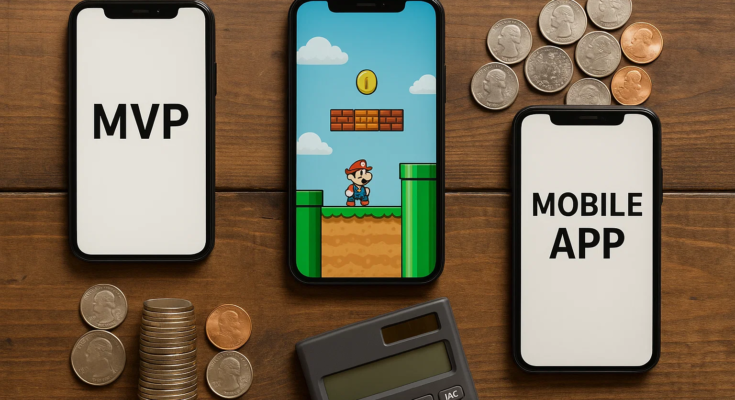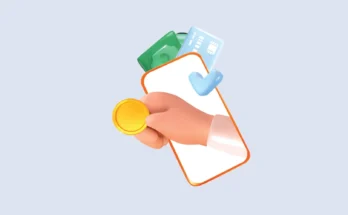Working with a mobile app development company in Dubai is exciting—you get to turn ideas into something people can actually hold in their hands. But before you start picturing millions of downloads, there’s one thing you’ll need to face early: the cost.
For many businesses, this is where expectations and reality collide. You might think a few weeks of coding is all it takes. In truth, the price depends on countless moving parts—some obvious, others easy to miss. Let’s unpack them so you can budget with confidence and avoid getting caught off guard.
The Big Factors That Shape the Price
Every app or game is its own unique project, but there are certain cost drivers that almost always apply.
Platform
- iOS: Often faster to develop due to fewer device variations.
- Android: May take longer because of the wide range of phones and tablets it needs to support.
- Both: Costs more initially, but can reach a bigger audience from day one.
Complexity
A simple quiz app or single-player puzzle game is far cheaper than a full-featured social platform or an online multiplayer game with live chat. The more features and integrations, the bigger the bill.
Design
From sleek interface layouts to 3D game assets, design is more than making something look nice—it shapes how people interact with your product. High-end visuals usually require more time, which means more cost.
How Mobile Games Differ in Cost from Apps
A mobile app development company faces unique challenges. Games aren’t just about function; they need to entertain, keep players hooked, and often push technical boundaries.
Here’s what usually adds to game budgets:
- Game engines like Unity or Unreal
- Custom animations for characters and environments
- Sound design for effects and music
- Balance testing to make gameplay rewarding but not frustrating
An app might be ready for launch in 4–6 months. A quality game, especially one with multiplayer features, can take 8–12 months or more.
Starting Small with an MVP
If you’re not ready to commit to the full feature set, an MVP app development company can help you build a scaled-down version first. An MVP (Minimum Viable Product) includes the core features you need to attract early users without pouring your whole budget into the first release.
Why MVPs work well:
- Lower starting costs
- Faster launch
- Early feedback to guide improvements
- Less financial risk if the idea needs major changes
Plenty of big-name apps and games began as MVPs before growing into global hits.
The Costs People Forget About
The launch day isn’t the finish line—it’s the starting point of ongoing expenses.
- Ongoing maintenance
Devices, operating systems, and security standards change over time. Without updates, your app or game will eventually break. This is where mobile app maintenance and support services come in, keeping your product secure and functional. - Marketing
Even the best software needs visibility. Whether it’s social ads, influencers, or app store optimization, promotion takes a budget. - Servers & hosting
If your product needs real-time features, leaderboards, or cloud saves, you’ll have recurring server costs. - Compliance
Some projects need certifications, ratings, or data privacy checks, which can add extra fees.
Typical Price Ranges
While exact numbers depend on the scope, here’s a general idea:
| Type of Project | Simple Build | Feature-Rich Build |
| Mobile App | $10,000 – $25,000 | $30,000 – $80,000+ |
| Mobile Game | $20,000 – $40,000 | $50,000 – $150,000+ |
These ranges can shift depending on where your mobile app development company is based and the size of their team.
How to Stretch Your Budget
Here are a few ways to avoid overspending:
- Prioritize must-have features for launch and save the extras for updates
- Test early so fixes are cheaper
- Choose the right tech stack for your goals
- Use hybrid frameworks if you need both Android and iOS quickly
- Communicate clearly with your developers to prevent scope creep
Choosing the Right Development Partner
Whether you hire in-house or outsource, the people you work with can make or break your project. Look for teams with:
- A proven track record in similar projects
- Transparent pricing
- A plan for post-launch updates
- Strong design and user experience skills
Some businesses work with one company for design, another for coding, and another for maintenance. Others prefer one partner from start to finish. It depends on your resources and comfort level.
Wrapping Up
App and game development isn’t just about building something that works—it’s about creating a product that can grow, adapt, and keep people coming back.
By factoring in both the obvious and hidden costs, starting smart with an MVP, and planning for long-term upkeep, you’ll avoid the budget shocks that sink so many projects. Whether your vision is handled by a mobile game development company, an MVP specialist, or a full-service team, the smartest move is choosing partners who understand your goals and can deliver the results you expect.




